There Are Problems the Market Can't Solve. Parking Isn't One of Them.
I live in a mid-sized city that's undergoing a construction boom. We have plenty of privately-owned surface parking lots in our downtown, but we also have fewer than we did ten years ago, as a good number have been sold and built upon.
And an interesting thing has started happening to the remaining parking lots in the last two or three years: these signs keep cropping up.
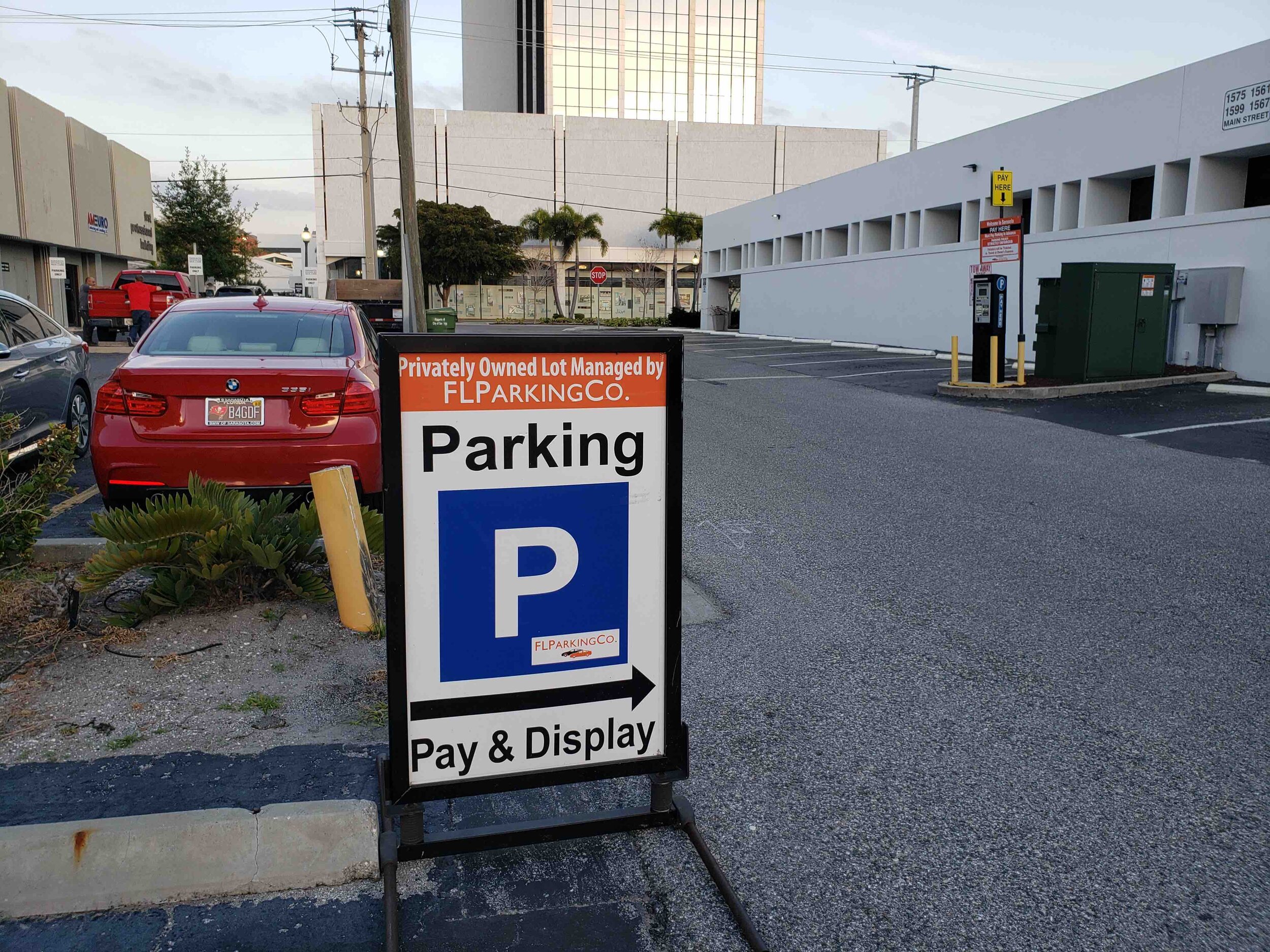
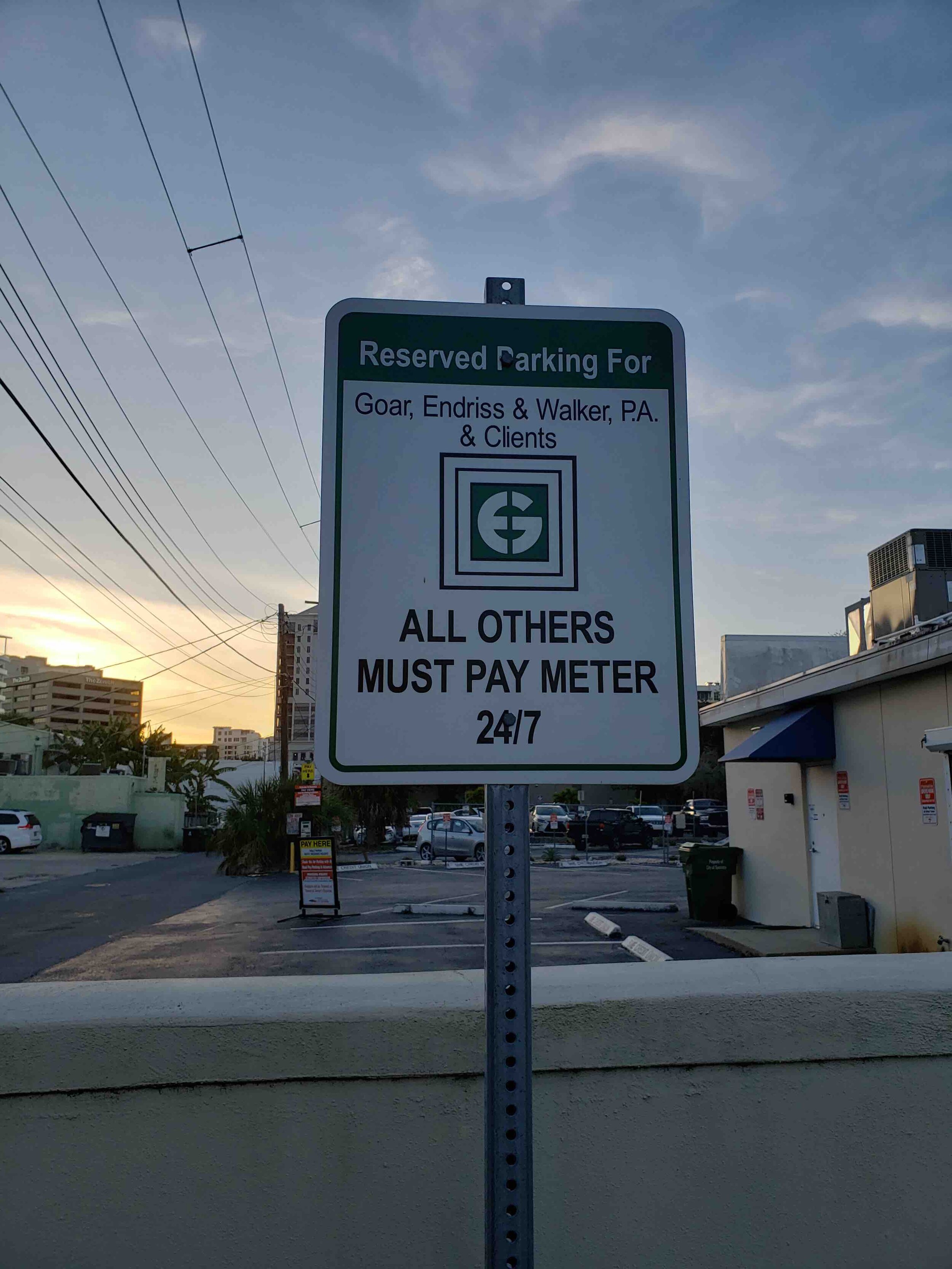
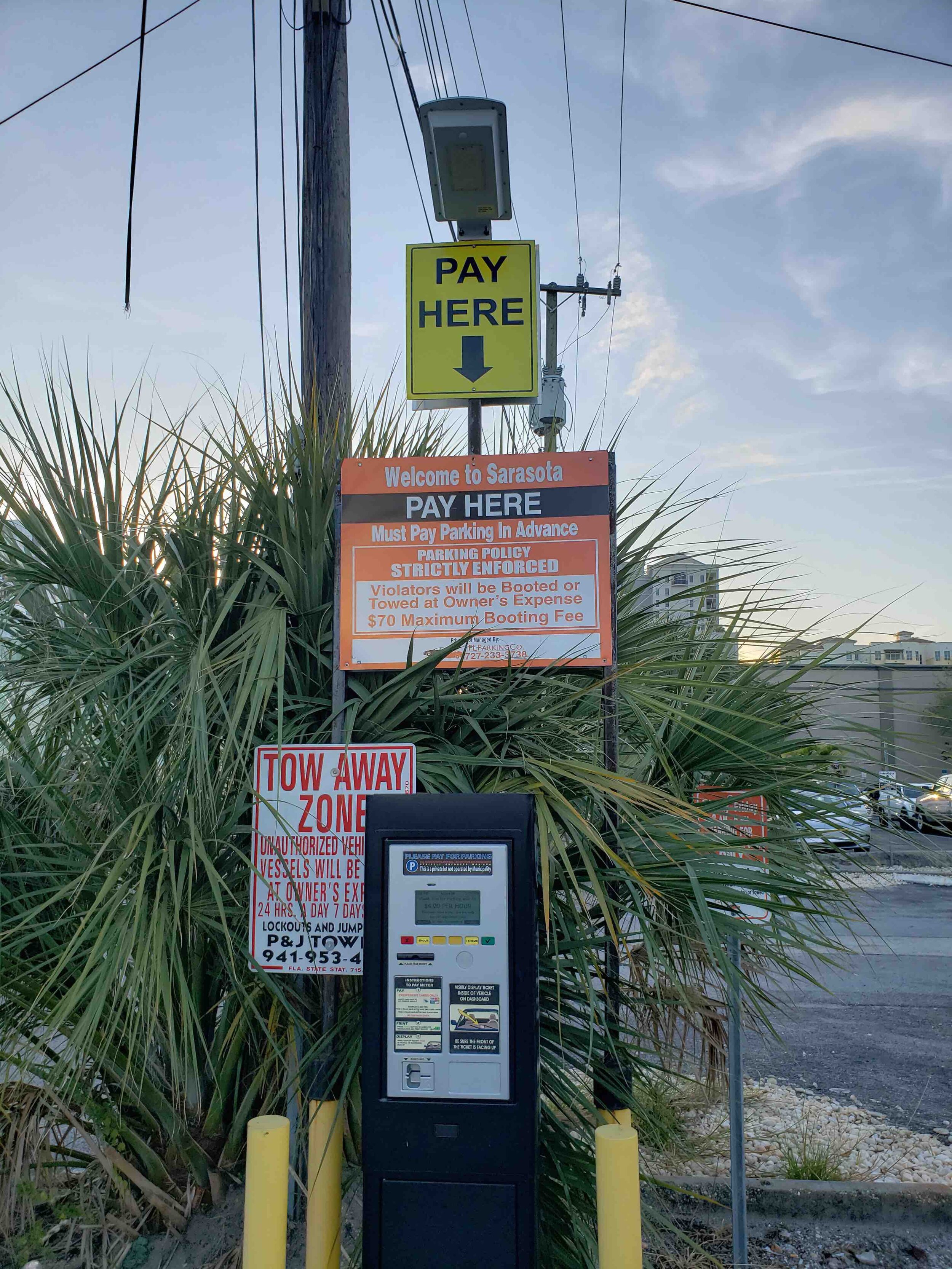
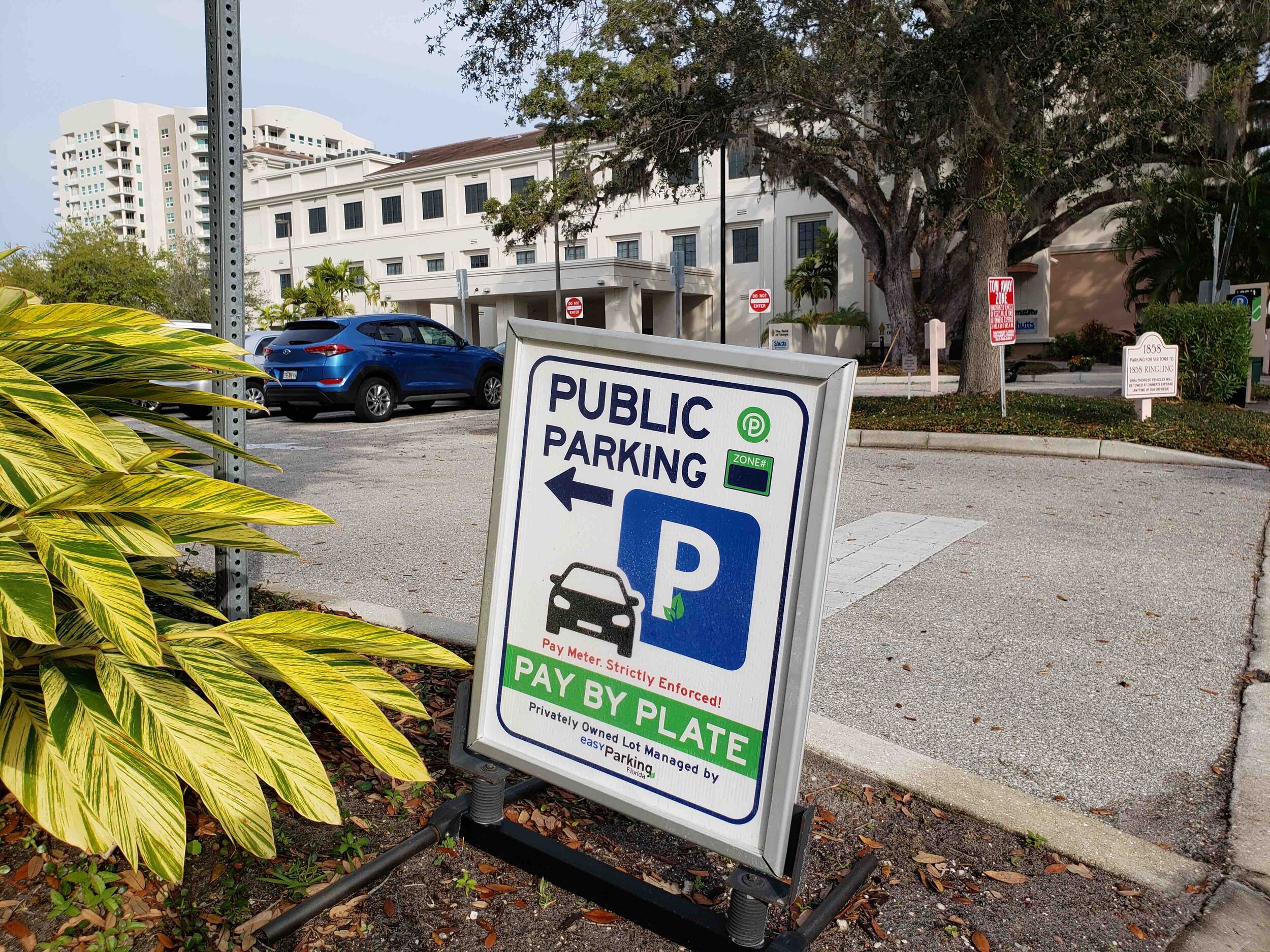
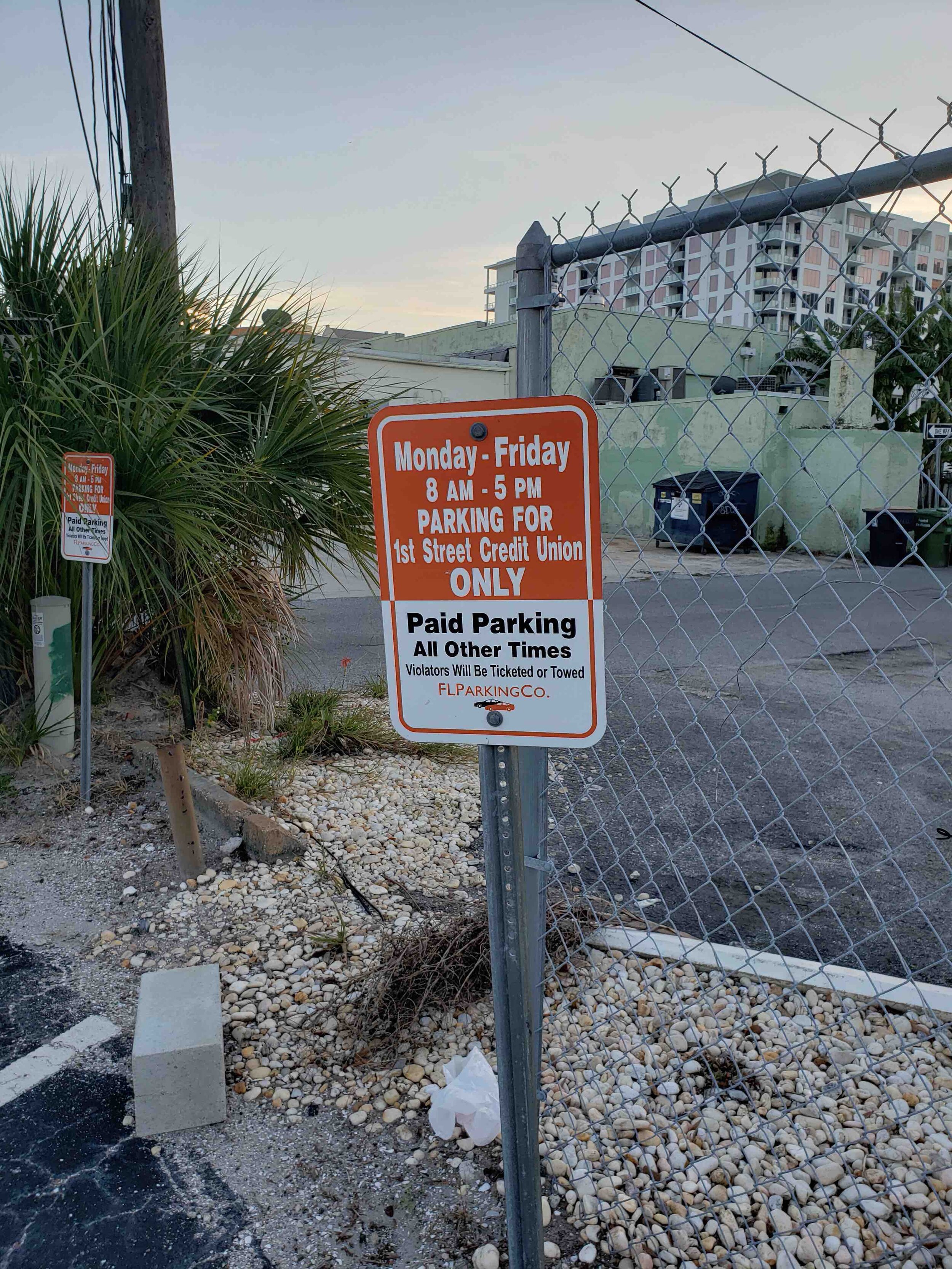
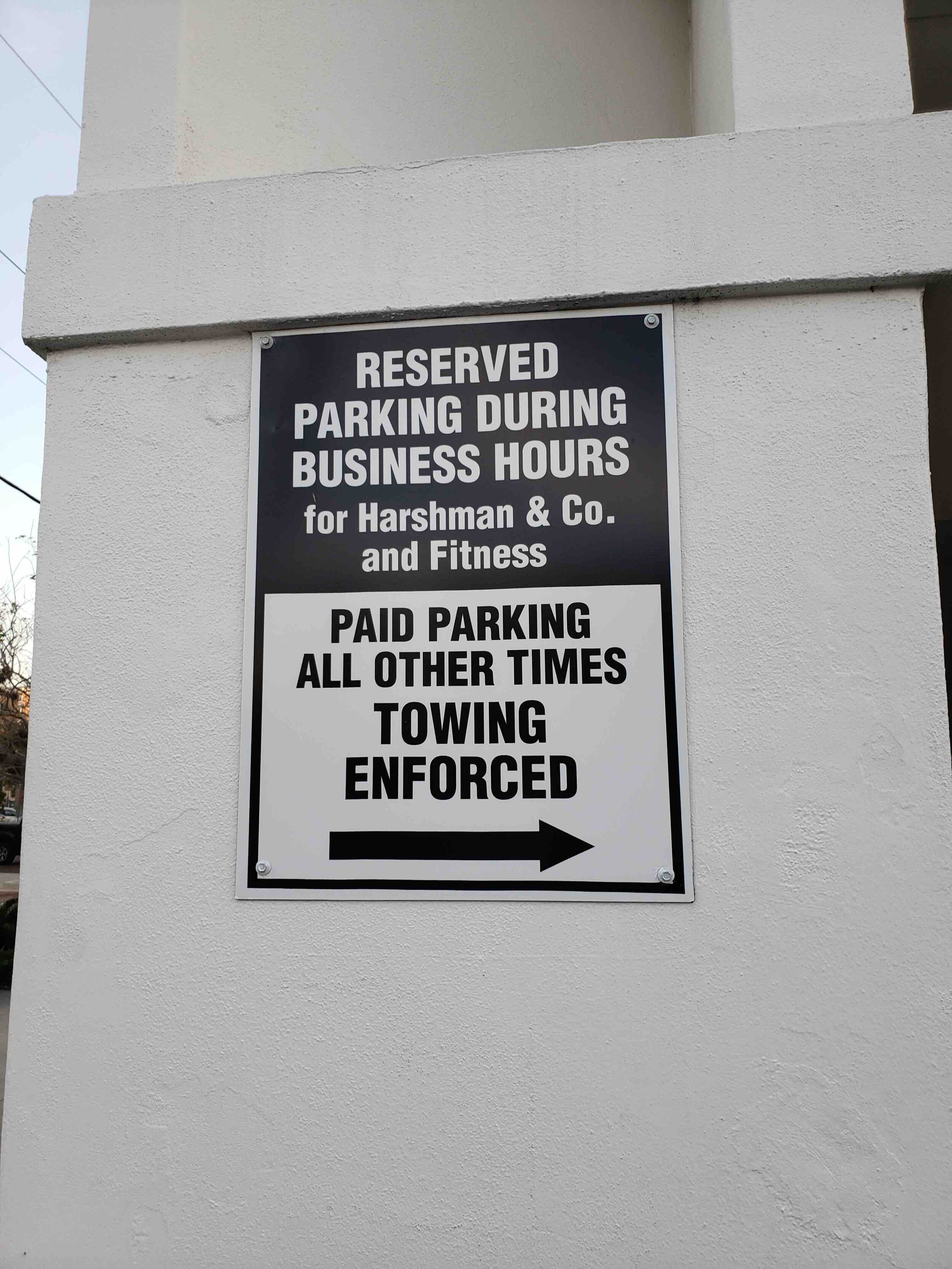
These are all lots that are owned by private businesses—a law firm, a credit union, a gym. Now the public can pay to use them—through a simple electronic pay station, with cash or a credit card, all managed by a middleman company who takes a cut of the proceeds. No attendant is on site. Technology has made this arrangement easier than ever for anyone who owns a patch of asphalt.
In the very recent past, most of these lots were reserved 24-7 for those businesses' employees. This meant that at dinner time on Saturday, there would simultaneously be, on the one hand, a huge number of cars cruising for on-street parking spaces and snarling up traffic. But on the other hand, a huge number of empty parking spaces existed that were off-limits to that public, owned by businesses that were not open at 7 p.m. on Saturday (or at 7 p.m. on Tuesday, for that matter).
This wasteful situation is common in cities across North America, and it's particularly maddening if you're someone invested in having a walkable place, or just in seeing your city's land used in value-generating and appealing ways.
Fortunately, a solution is presenting itself.
An Answer to a Common Objection
The most common objection to the idea of removing minimum parking requirements for businesses and residential buildings goes like this. The short version:
"But how can we make sure there'll be enough parking if we don't mandate it?"
The longer, more charitable version (I believe in only ever arguing with the most reasonable, generous interpretation of your opponent's view) is that not requiring parking creates a tragedy-of-the-commons problem with regard to public parking:
"If you stop mandating parking, every individual business or developer will have the incentive to be a freeloader by skimping on parking and just making their tenants/customers park on the street. The problem is that when everyone does this, pretty soon there won't be enough street parking, and then this will cause traffic jams and hurt businesses."
This is not an unreasonable thing to expect, if you view on-street parking as a commons. It will tend to be overexploited, and the eventual shortage may result in queueing—that is, tons of people circling block after block looking for an open space, which is a miserable experience for all involved.
Of course, there's a simple solution to that problem from the city's point of view:
Charge for street parking.
Experiment with the price, and charge whatever price seems to balance supply and demand, in order to maintain an average of about one open space per block, as Donald Shoup famously recommends. This is exactly what my city began doing recently, and the result has been to greatly accelerate the trend of privately-owned parking lots, and to greatly reduce the obnoxious phenomenon of cruising for a parking space.
People who come downtown now mostly expect to pay for parking. But because of this expectation, they go straight to a lot (often one of these privately-owned ones) or garage or metered street space, instead of circling for ten minutes. Cheapskates like me who don't mind walking a few blocks know where the free parking is: on the fringes of downtown where demand isn't high enough to justify meters. We go there, park easily for free, and walk.
What will happen if we reach a point where all of those private surface lots have been developed? (I'd love to see us get there, because it would mean a much improved walking experience and a livelier downtown.) I expect larger office buildings that own their own garages will start doing the same thing: renting out their excess space for a bit of profit.
A parking garage offering monthly rates in an urban area where many buildings do not provide their own on-site parking.
What happens if even that is no longer sufficient to meet parking demand? Simple: someone will build a garage and charge people to park in it, at a price that makes this a profitable endeavor. This is what already happens in large cities' downtowns. (Including for their permanent residents: if you live in an apartment building that doesn't have its own parking, it's not uncommon to rent space by the month in a garage a block or two away. If you live in this kind of environment, you're probably not taking your car out every day or relying on it for most errands, so it's not a hardship.)
The great thing about this is that it exposes the trade-off that is using valuable downtown land for the low-value use of parking. The market will provide parking, but only where it's a profitable endeavor, which means the price of that parking is determined by the opportunity cost of using the land for something else (like housing or office space). In places where land is cheap, it may be profitable to provide parking for next to nothing. In places where land is incredibly expensive, parking will cost a lot more. So be it.
I have literally never been anywhere where there was, in fact, "not enough parking." What people really mean when they fear that there won't be enough parking is that there won't be enough free parking exactly where they want to go.
I get it: when you're used to having something subsidized for you, taking the subsidy away feels like an imposition. But it's a necessary step toward reclaiming our cities. We'll get over it. And I bet we'll even like the results.
(Cover photo via Piqsels.)

Daniel Herriges has been a regular contributor to Strong Towns since 2015 and is also a founding member of the organization. His work at Strong Towns focuses on housing issues, small-scale and incremental development, urban design, and lowering the barriers to entry for people to participate in creating resilient and prosperous neighborhoods. Daniel has a Masters in Urban and Regional Planning from the University of Minnesota, with a concentration in Housing and Community Development.
Daniel’s work with Strong Towns reflects a lifelong fascination with cities and how they work. When he’s not perusing maps (for work or pleasure), he can be found exploring out-of-the-way neighborhoods on foot or bicycle. Daniel has lived in Northern California and Southwest Florida, and he now resides back in his hometown of St. Paul, Minnesota, along with his wife and two children.